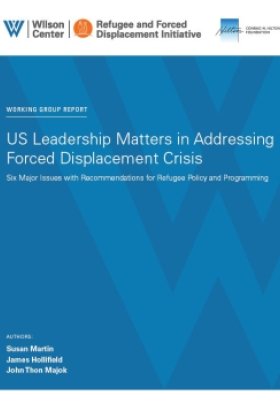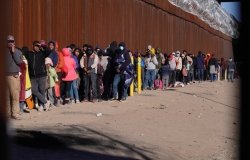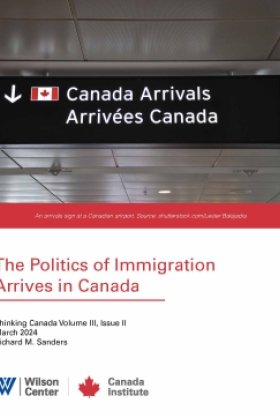Immigration and the US Supreme Court
Washington, DC—On April 25 the U.S. Supreme Court will hear a case brought against Arizona’s strict new immigration laws, passed in Arizona Senate Bill 1070. The decision will have a resounding impact on immigration laws in many other states and set a precedent for where the jurisdiction for the creation and enforcement of U.S. immigration laws falls – with the federal government or with individual states.
Karthick Ramakrishnan is an author and academic researching the politics of immigration in U.S. policymaking. Most research suggests that state and local immigration laws follow new geographic patterns of immigration but Ramakrishnan shows that political dynamics are more salient. Read his full analysis of empirical data here http://karthick.com/workingpapers.html.
Watch Ramakrishnan Explain the Politicization of Immigration (8:22)
A brief analysis by Ramakrishnan of the case imminently coming before the U.S. Supreme Court and its potential effect on politics and immigration in the US follows below.
What are the issues this case will decide?
The case will focus mostly on the issue of whether or not a state government can engage in immigration enforcement without the explicit consent of the federal government. The lower courts have blocked some key provisions of Arizona’s law, including one that requires residents to carry proof of their legal immigration status, and another that requires law enforcement officers to check on the immigration status of anyone they stop.
The state of Arizona will argue that its measures simply complement federal enforcement, while the federal government will argue that Arizona’s law runs contrary to federal enforcement policies. Perhaps more centrally, the Department of Justice will argue that immigration enforcement is exclusively under federal control—similar to foreign policy—and the federal government has not given Arizona the authority to practice enforcement along the lines outlined in the state’s SB1070 law.
The Arizona case has generated a lot of debate on other issues like racial profiling, the effects of enforcement on families, and the economic impacts of illegal immigration. Those are not issues that will be decided by the Court, but will inevitably come up during the public debate on this issue.
What are the important individuals or groups that support the law? What are those opposed?
Some of the important individuals or groups supporting the law include the governors of Arizona and several other states; elected representatives (nearly all of whom are Republican); Sheriff Joe Arpaio of Maricopa County, Arizona; organizations like NumbersUSA and the Federation for Immigration Reform (FAIR); and Kris Kobach, who works for the legal arm of FAIR and claims credit for writing much of the legislation in Arizona, Alabama, and elsewhere.
Opposed to the law are California, Illinois, and several other states; elected representatives (nearly all Democrat); many police chiefs; several foreign governments; and organizations like the ACLU, the U.S. Conference of Mayors, and various labor unions, religious groups, and civil rights organizations.
How will this ruling (in either direction) affect elections this November?
Mitt Romney has declared that he would allow state laws like Arizona’s SB1070 to stand, and President Obama has opposed such laws. Regardless of how the Supreme Court decides, if Romney continues to voice support for these laws, he will find it difficult to win Latino supporters. A Fox News Latino poll in March showed Romney with only 14% support among Latinos, and he needs to improve his standing among that community, particularly to win states like Florida, Colorado, and Nevada.
If this law is upheld, are other states likely to pass similarly strict enforcement laws?
A favorable Supreme Court ruling would mean that immigration enforcement is not exclusive to the federal government, so you will inevitably see more state involvement.
Some states have already passed similar laws that are on hold—including Alabama, Georgia, South Carolina, and Indiana—and a favorable Supreme Court ruling would make many of those laws immediately enforceable. Based on my research, states where Republicans control the legislature and the governorship will be especially likely to pass similar laws in the future.
Karthick Ramakrishnan is available for comments or interviews. To reach him please contact Drew Sample at drew.sample@wilsoncenter.org or 202 691 4379.









